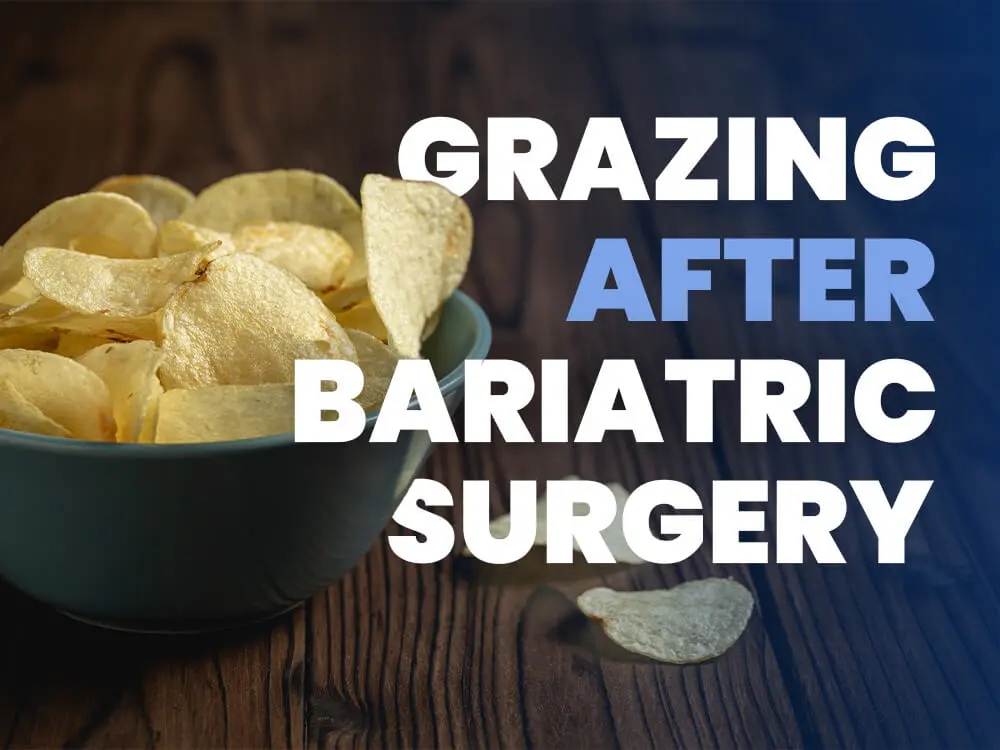
Bariatric surgery can be a life-changing procedure for individuals struggling with obesity. It provides various methods to control weight and improve overall health. However, post-surgery dietary habits are crucial, and one such habit that often surfaces is grazing. Understanding the implications of grazing on weight loss success is essential for those who have undergone this type of surgery.
Understanding Bariatric Surgery
Bariatric surgery involves surgical procedures aimed at aiding weight loss for individuals with severe obesity. It typically alters the digestive system, resulting in reduced food absorption and altered metabolism. This surgical intervention is often considered a last resort after other weight loss methods, such as diet and exercise, have failed. The decision to pursue bariatric surgery is not taken lightly; it requires a commitment to long-term lifestyle changes and an understanding of the potential risks and benefits involved.
The Process of Bariatric Surgery
The process usually begins with an extensive evaluation, including medical history reviews, psychological assessments, and nutritional consultations. These evaluations are crucial as they help healthcare providers determine the most appropriate surgical option for each patient. Once a patient is deemed a suitable candidate, the surgery is performed, which can be either restrictive, malabsorptive, or a combination of both. For instance, gastric bypass surgery not only restricts the amount of food the stomach can hold but also alters the digestive tract to reduce calorie absorption.
Post-operative care is equally important, as it provides guidance on diet, physical activity, and lifestyle adjustments. Patients are typically placed on a strict dietary plan, initially focusing on liquids before gradually transitioning to more solid foods. This phase is critical for healing and adapting to the new digestive system. Regular follow-ups with healthcare providers are essential to monitor progress, address any complications, and ensure that patients are meeting their nutritional needs. Support groups and counseling can also play a vital role in helping individuals adjust emotionally and psychologically to their new lifestyle.
Different Types of Bariatric Surgery
There are several types of bariatric surgeries, including gastric bypass, sleeve gastrectomy, and adjustable gastric banding. Each procedure has its unique approach and expected outcomes, tailored to meet individual patient needs. For example, sleeve gastrectomy involves removing a significant portion of the stomach, which not only limits food intake but also reduces the production of hunger hormones, leading to decreased appetite. On the other hand, adjustable gastric banding involves placing a band around the upper part of the stomach to create a small pouch, which can be adjusted over time to control food intake.
Understanding the type of surgery performed can help patients better navigate their dietary restrictions and the subsequent challenges they may face when trying to maintain their weight loss. Moreover, it is essential for patients to recognize that while bariatric surgery can lead to significant weight loss, it is not a cure for obesity. Long-term success often hinges on a commitment to a healthy lifestyle, including regular exercise and balanced nutrition. Additionally, awareness of potential complications, such as nutritional deficiencies or surgical risks, is crucial for patients to manage their health effectively after the procedure.
The Concept of Grazing Post-Surgery
Grazing refers to the habit of consuming small amounts of food throughout the day, rather than adhering to structured meals. While this might seem benign, it can significantly impact weight management following bariatric surgery.
Defining Grazing in Dietary Terms
In dietary terms, grazing is often associated with the frequent ingestion of food, which can easily lead to consuming excess calories. For individuals who have undergone bariatric surgery, this is particularly concerning, as their calorie requirements are reduced significantly post-op.
Understanding grazing is vital as it can lead to a breakdown of the dietary protocols established for weight loss and maintenance.
Why Grazing Can Be Problematic
While grazing might seem like a harmless eating behavior, it can prevent patients from achieving their weight loss goals. Grazing often leads to unmonitored calorie intake and may cause patients to miss out on essential nutrients needed for recovery.
Furthermore, the psychological aspects of grazing can also present challenges, as it can be linked to emotional eating and a lack of proper meal planning. Thus, identifying and addressing grazing habits is critical for long-term success.
The Impact of Grazing on Weight Loss
Understanding the connection between grazing and weight loss is essential for postoperative patients. Those who are aware of how their eating patterns affect their long-term goals can develop strategies to combat undesired habits.
How Grazing Affects Caloric Intake
Grazing can lead to an inadvertent increase in caloric intake. This not only stifles weight loss progress but can also lead to weight gain. Without structured meal times, it becomes easy to consume foods that are high in calories but low in nutritional value.
Consequently, maintaining a balanced diet becomes a challenge for those who find themselves grazing instead of eating scheduled meals.
The Relationship Between Grazing and Weight Regain
The correlation between grazing and potential weight regain is well documented. Studies show that habits formed post-surgery can drastically influence long-term weight management success.
Patients who graze frequently after surgery are at a higher risk of regaining weight than those who stick to a structured eating plan. This makes it imperative for patients to cultivate healthy, consistent eating habits.
Strategies to Prevent Grazing After Bariatric Surgery
To maintain weight loss and improve overall health, it is important for patients to adopt strategies specifically designed to curb grazing behavior.
Mindful Eating Techniques
One effective strategy to prevent grazing is the implementation of mindful eating techniques. Mindful eating encourages individuals to focus on the eating experience, acknowledging the flavors, textures, and sensations associated with their food.
This approach can help individuals become more aware of their hunger signals and reduce the tendency to snack aimlessly throughout the day.
Establishing Regular Eating Patterns
Creating and adhering to a structured eating schedule is crucial. Regular meals and snacks help to regulate hunger and minimize the temptation to graze. By planning meals, patients can ensure they meet their nutritional needs while avoiding unnecessary caloric intake.
Incorporating healthy snacks can also be a part of this plan, allowing for controlled, planned eating throughout the day while avoiding the pitfalls of grazing.
The Role of Nutritionists and Dietitian
Nutritionists and dietitians play an essential role in the journey of individuals following bariatric surgery. Their expertise can significantly contribute to long-term success by addressing dietary behaviors like grazing.
How Nutritionists Can Help
Nutritionists offer personalized guidance based on individual dietary needs and lifestyle. They can help craft meal plans that focus on nutritional adequacy while reducing the likelihood of grazing.
Additionally, they can assist in educating patients about portion sizes, food choices, and the importance of eating regularly scheduled meals.
The Importance of Follow-Up Appointments
Regular follow-up appointments with nutritionists or dietitians are crucial in monitoring progress and making necessary adjustments to the diet. These appointments provide opportunities to discuss challenges faced, including issues related to grazing.
Frequent check-ins can help reinforce positive habits and ensure ongoing support, making it easier for patients to stay committed to their weight loss journey.





